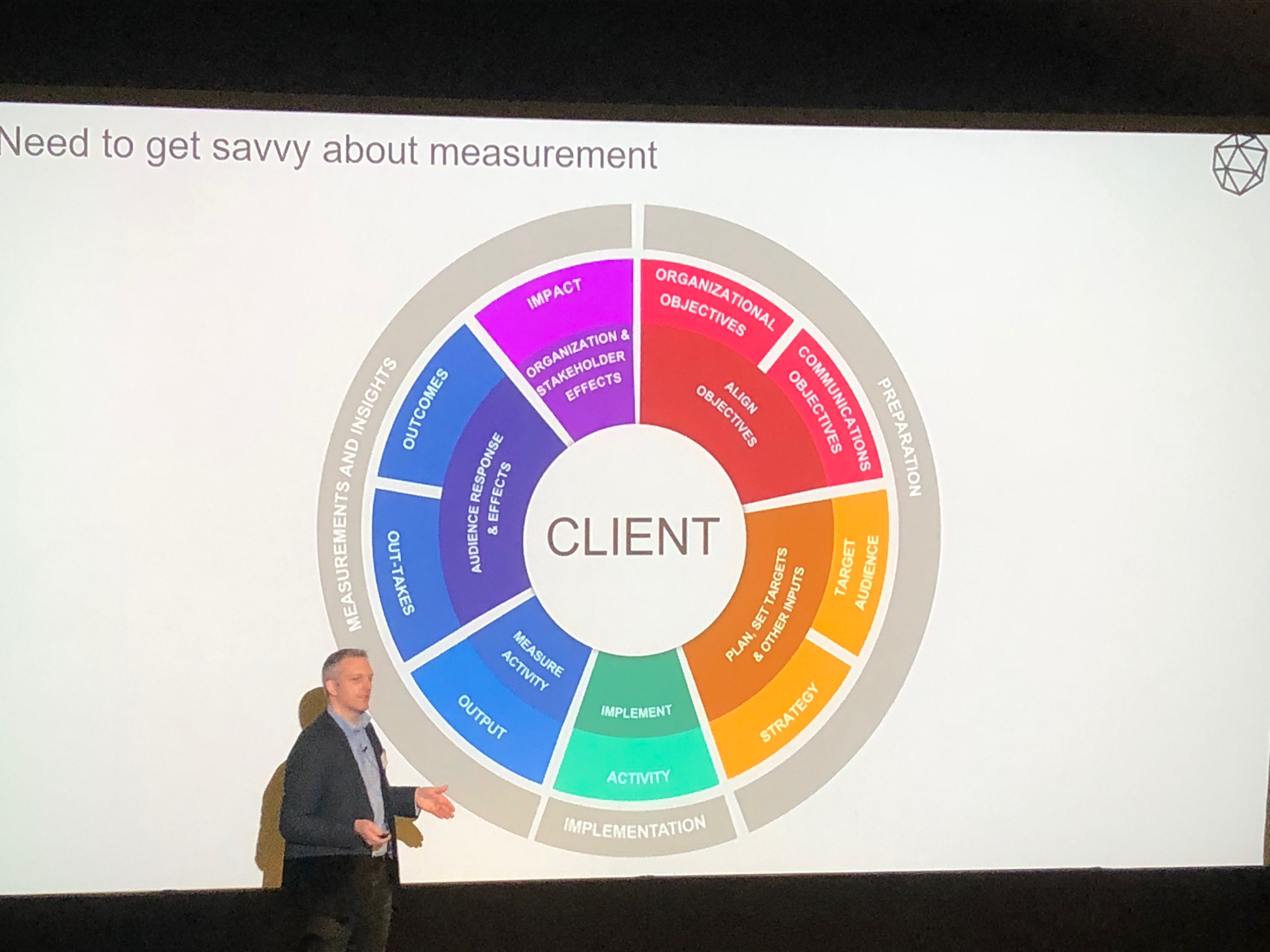Lewis PR alongside PRmoment.com ran an event this morning called: "BRAND TO SALES: THE NEW ROLE OF MARKETING COMMUNICATIONS".
This is a recurring theme with the businesses I work with. Two years ago, more visitors to a website and an increase in "share of voice" on the social networks was enough to hit a marketer's KPIs. Today, however we see more and more people who want to see a "real" business impact from the activities they run: Leads generated, revenue driven and overall business growth.
Rachel LockwoodGiles Peddy, UK MD at Lewis PR led the way on this theme and indeed we saw a case study where Lewis PR and SAS had worked together to drive real business growth. Here are a few things I picked up from their presentations:
, Marketing Director at SAS and

USEFUL CONTENT
At the start of her presentation, Rachel Lockwood summed up content marketing perfectly when she talked about the importance of content and how it needed to be "interesting, helpful and useful to the audience". Earlier in the event, Nick Andrews, Head of Digital Marketing at Linklaters had said something very similar; that people come to their website to "find information that helps them do their job more effectively".
If you can deliver content to your clients and prospects that genuinely helps them do their jobs more effectively then you have done your job. You might not get them as a customer that day, but over time if you continue to make them better at their job, then one day, when they need help from someone in your field - then there is a very good chance they will pick up the phone to you - - the expert - - the trusted advisor.
CONTENT FOR LEAD GENERATION
Rachel went on to show a number of metrics from the success of the work that SAS did with Giles and his team - and for me, the most important metrics were how it fed into lead generation. You can see those metrics in the lead image at the bottom of this post. The leads and new client numbers may be tiny compared to the 50,009,435 reach from the press coverage - but they are real AND measurable.
I was recently working with a global professional services firm. I asked one of the Senior Partners what he wanted to get out of creating expert-led insights. He told me he wanted 3,000 reads of his insights each month. When I questioned him on whether there were even 3,000 people in the world who could possibly buy his services, he said "no". I asked him how many people in the world could potentially buy his services and he replied "20". So the plan became how could we get his expertise in front of those 20 key people. Just those 20 people. This also became a lot easier to measure because we were not trying to understand who the 3,000 people might be - we just needed to understand how many of his 20 key people were engaging with his content and who they were.
MEASUREMENT
Giles talked about the importance of getting savvy with measurement. He said in the "old days", measurement was how big the thud was when you dropped the press clippings book onto the coffee table! He showed two slides around measurement:

I could not agree more when he went on to say that measurement is not something you do at the end - that is evaluation - measurement has to be built into everything you do right from the start. The summary of all of this was that the most important thing and all the C-Suite really care about was: What is the impact of the activity? That is the column to the right hand side of the image below and he said that is the only column the C-Suite really look at:

For any B2B business I would suggest it would be time well spent meeting with Giles and his team for one key reason, which is their clear focus on getting rid of vanity metrics and focussing on the actual impact of any activity to your business.
It was a great morning in that it was so refreshing to hear so many people throwing away the vanity metrics in favour of real business impact and bringing marketing and sales closer together. It's not usually very difficult to convince people of this but we still see it where people's KPIs are set against vanity metrics - and if so then can we really blame people for focussing on them if that's what gets them their bonus?
Businesses must ensure that there team are focussed on the right things and have relevant KPIs to the wider business objectives.
This is a must-attend event for senior B2B marketing, PR and comms practitioners involved in setting strategy and investment in 2018. The Big Picture is dedicated to understanding the importance of every aspect of a business, from brand awareness to sales in B2B marketing. This event is packed with insights and practical tips from experts. We will cover a wide range of themes including in-depth discussions on the trends coming up in the next 12 months in the B2B space.
http://www.teamlewis.com/uk/events/the-big-picture-brand-to-sales
 unknownx500
unknownx500

/Passle/53d0c8edb00e7e0540c9b34b/MediaLibrary/Images/2025-11-11-13-08-44-847-6913355cc341c3c6036f8803.jpg)
/Passle/53d0c8edb00e7e0540c9b34b/MediaLibrary/Images/2025-07-29-15-50-27-518-6888edc30e6537db4b3226f2.png)
/Passle/53d0c8edb00e7e0540c9b34b/MediaLibrary/Images/2025-03-04-18-50-59-946-67c74b93af5fb4d428e92fa3.jpg)
/Passle/53d0c8edb00e7e0540c9b34b/MediaLibrary/Images/2025-01-27-12-19-11-387-679779bf684e94418774bbed.jpg)



.png)
